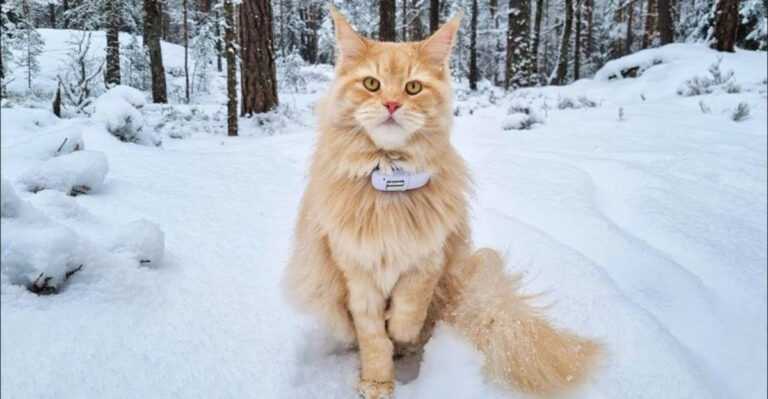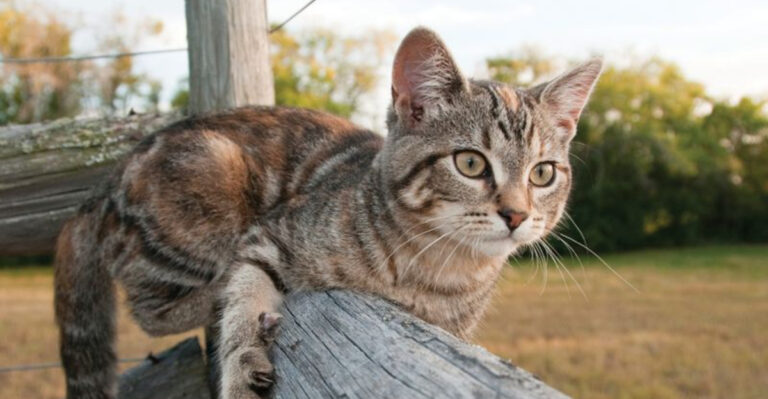10 Things About Humans That Drive Cats Crazy

Cats have been companions to humans for thousands of years, yet some of our habits can drive them absolutely nuts.
Despite their aloof demeanor, cats are sensitive creatures with particular needs and preferences. Today, we’ll delve into the things that humans do that might be pushing their feline friends to the edge.
From loud noises to inconsistent feeding times, these behaviors can turn a peaceful cat into a grumpy kitty. Understanding these triggers can foster a more harmonious home environment for both cats and their humans.
1. Introducing New Animals Into Their Territory
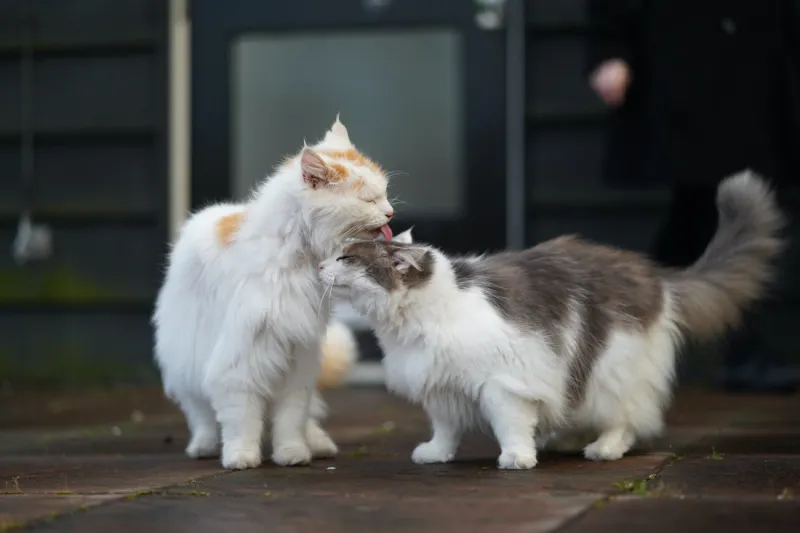
Cats thrive on stability, and introducing a new animal can feel like an unwelcome intrusion. This new presence, whether it’s a playful puppy or a quiet hamster, brings new scents and energy that disrupt their comfort.
Cats might hide, act out, or even mark their territory to cope. Gradually managing these introductions can help. Start by letting them sniff each other through a closed door and slowly increase interactions.
Providing separate resources, like food bowls and litter boxes, helps too. Forcing quick interactions might backfire, making patience vital. Giving individual attention assures the existing cat its place is secure, promoting eventual peace.
2. Lack Of Mental And Physical Stimulation
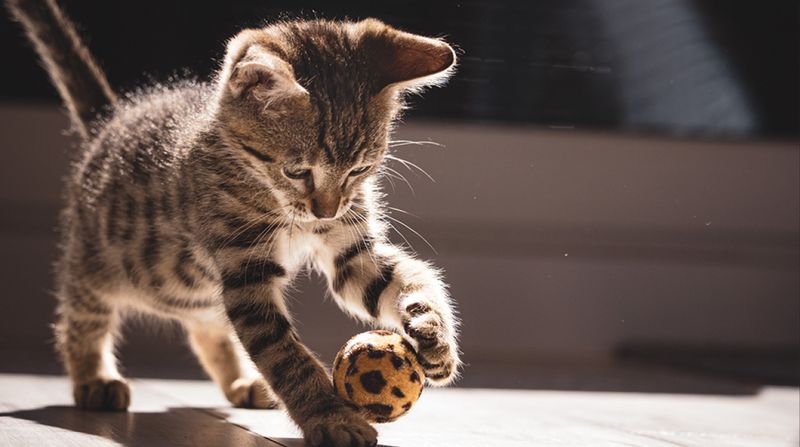
Boredom can turn a once-calm cat into a bundle of mischief, leading to scratched furniture or constant meowing. Cats are natural hunters, and even as domesticated pets, they need stimulation.
Offering a variety of toys, engaging in interactive play, and providing scratching posts can keep them entertained. Puzzle feeders simulate the challenge of foraging, making mealtime fun. Rotating toys and introducing new games periodically can keep their interest fresh.
Encouraging regular playtime helps them burn off energy, strengthening your bond. A stimulated cat is a happy one, both mentally and physically, which fosters a content household.
3. Loud Noises
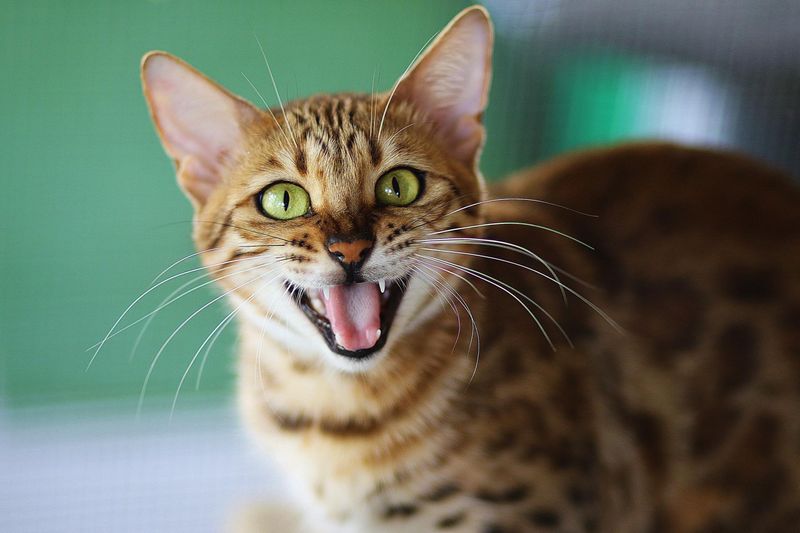
Cats’ sensitive hearing means loud noises can be intensely stressful. Noises like vacuum cleaners, blaring TVs, or thunderstorms can send them scurrying for cover.
Creating a quiet retreat helps alleviate this stress. Offering comfort items like a favorite blanket or toy can soothe them. Whenever possible, reduce the volume of household noises or create a buffer to minimize their impact.
Understanding and mitigating loud disturbances helps maintain a peaceful environment. Providing a safe space where they can retreat can make a significant difference in their comfort and confidence at home.
4. Strong Scents
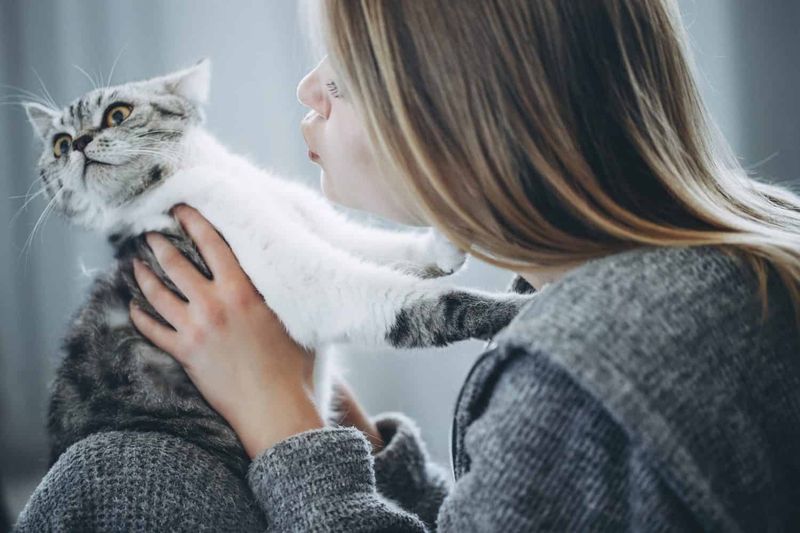
A cat’s sense of smell is remarkably keen, making strong scents overwhelming. Odors humans enjoy, like citrus or perfume, might distress a feline.
Cleaning products and scented candles can irritate their sensitive noses. Cats might avoid rooms where these smells dominate. Opting for unscented or pet-safe products helps avoid discomfort. Keeping areas ventilated and testing scents in small doses maintains harmony.
Cats appreciate it when their environment respects their sensory needs. This consideration fosters a more pleasant and stress-free home for both cats and their humans, allowing for a more natural coexistence.
5. Too Much Attention

While cats may seek affection, their independent nature means too much attention can overwhelm. They have clear signals for when they’ve had enough, such as tail flicking or trying to escape.
Ignoring these cues might lead to swatting or biting as they assert their boundaries. Respecting a cat’s need for space is crucial. Allowing them to initiate contact ensures a happier, relaxed feline. Balancing affection with independence strengthens trust and reduces irritation.
A relationship built on respect and understanding leads to a more harmonious coexistence, where both cat and owner can enjoy each other’s company.
6. Unpredictable Movements
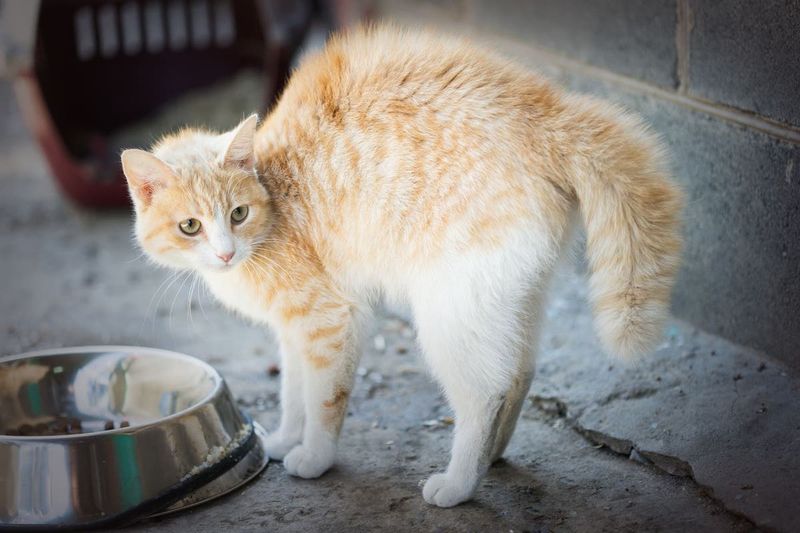
Cats, observant and territorial, find unpredictable movements unsettling. Children running or sudden gestures can startle them, disrupting their sense of control over their space.
Such actions might be perceived as threats, causing anxiety or defensive behavior. Keeping movements calm and predictable helps maintain their peace. Educating family members, especially children, on how to approach and interact gently with cats fosters a less chaotic environment.
A calm surrounding helps cats feel secure, reducing stress-induced behaviors. This understanding creates a more relaxed home, where cats can thrive without fear or anxiety, leading to happier pets.
7. Inconsistent Feeding Times
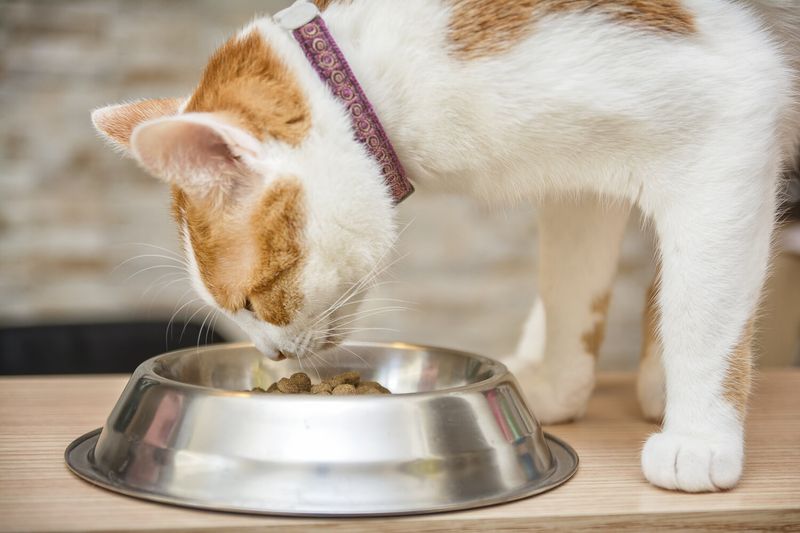
Cats, creatures of habit, find inconsistent feeding times confusing and stressful. Much like humans, cats appreciate routine, and irregular schedules can cause anxiety.
Skipping meals or feeding at different times can disrupt their digestive system, leading to behavior problems. Regular feeding schedules reassure them, maintaining their well-being. Using automated feeders or setting alarms helps maintain consistency.
Sticking to a routine ensures cats remain satisfied and content, fostering a healthier and happier household. This predictability provides comfort for cats, allowing them to relax and focus on being loving companions, as they know their needs are reliably met.
8. Ignoring Their Litter Box Needs
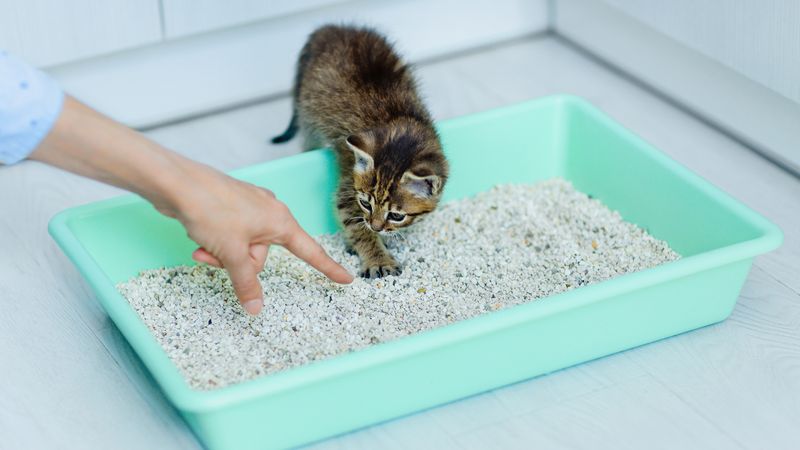
Cats’ meticulous nature makes a dirty litter box their nightmare. Ignoring their litter box needs might lead to inappropriate elimination or stress-related behaviors.
Regular cleaning and choosing the right litter type are crucial. Cats refuse to use a box that’s too dirty, opting instead for cleaner areas. Multi-cat households might need multiple litter boxes to ensure comfort.
Paying attention to litter box hygiene assures your cat that their needs are respected, leading to a more harmonious cohabitation. Cleanliness promotes happiness in cats, reducing stress and fostering a more pleasant living environment for everyone.
9. Heavy-Handed Discipline
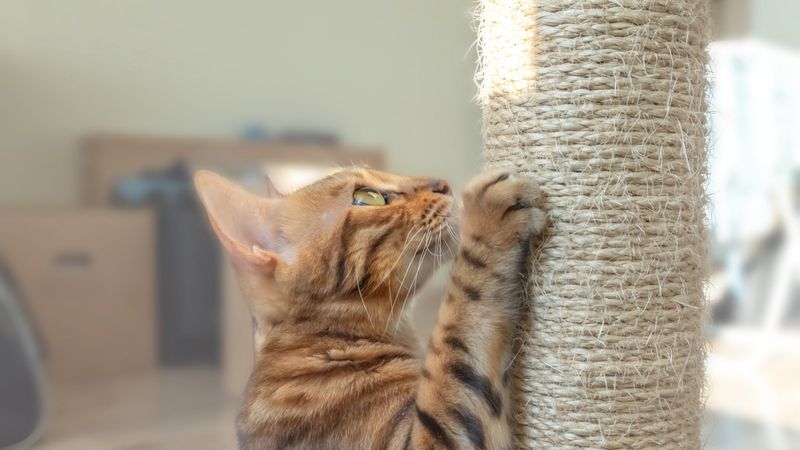
Cats react poorly to heavy-handed discipline, which often creates fear rather than understanding. Physical punishment or yelling can damage trust, causing more harm than good.
Positive reinforcement is more effective, rewarding desired actions encourages repetition without instilling fear. Understanding and patience go a long way in training cats. Providing a safe, supportive environment allows them to learn without fear of punishment, fostering trust and love.
Building a relationship on positive interactions ensures that both cat and owner can live together peacefully, creating a home filled with mutual respect and understanding, enhancing the bond shared.
10. Disruption Of Sleep
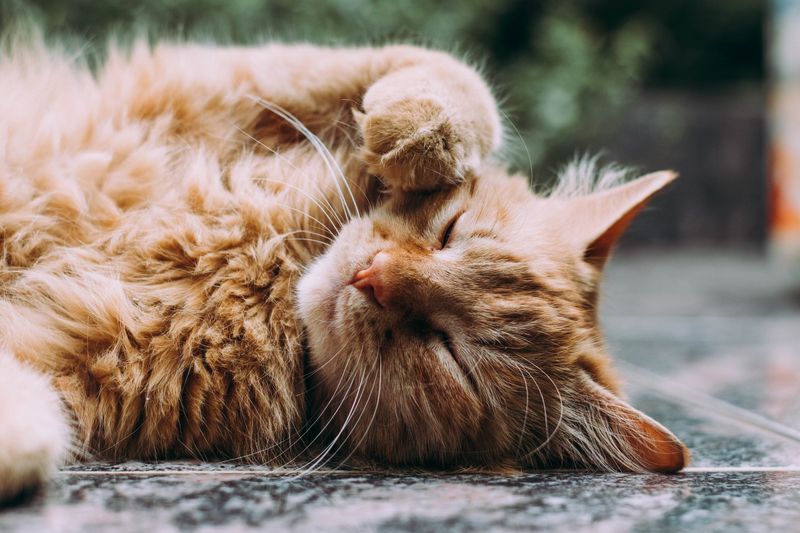
Cats cherish their sleep, making it a vital part of their daily routine. Disruptions can lead to crankiness and stress, impacting their well-being.
Ensuring they have a quiet, comfortable place to rest is vital. Cats choose sleeping spots based on peace, and interruptions make them insecure. Respecting their sleep time minimizes disruptions, leading to a happier feline.
A well-rested cat is more playful and content, enhancing their overall quality of life. Providing a serene environment for rest nurtures a cat’s sense of security and comfort, promoting a more harmonious relationship with their human companions.



